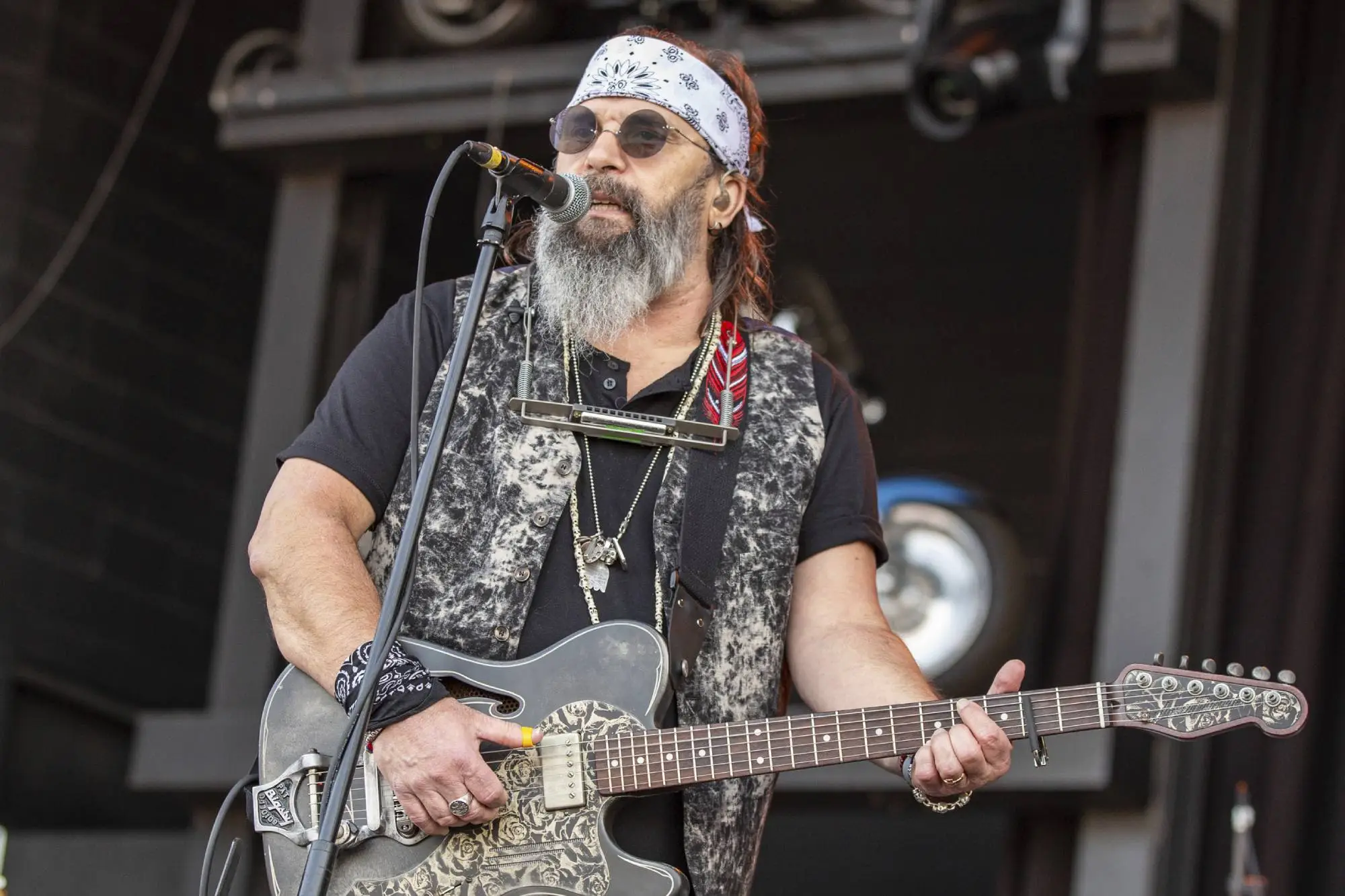Overview and Impact of Steve Earl as a Music Artist
Steve Earle, born January 17, 1955, in Fort Monroe, Virginia, is a prolific American singer-songwriter, actor, author, and activist. Known for his blend of rock, country, and folk influences, Earle’s music often addresses social issues and personal struggles, portraying stories of working-class America with gritty authenticity. Since his debut, Earle has gained a reputation for his rebellious spirit and has been influential in the genres of country, rock, and Americana. His storytelling, combined with his activism, has cemented his place as one of the most respected and impactful artists in contemporary American music.
Key Phases in Steve Earle’s Career
- Early Career and Breakthrough (1980s): Earle’s early career was a struggle to find his voice within the Nashville country scene. After years of honing his craft, he broke through with his debut album Guitar Town (1986), which reached No. 1 on the Billboard Country Albums chart. With hits like “Guitar Town” and “Hillbilly Highway,” the album established Earle as a leading voice in what became known as “alt-country,” a movement that rejected the polished sounds of Nashville in favor of raw, honest storytelling.
- Experimentation and Activism (1990s): Earle’s 1990s work was marked by musical experimentation and personal struggles. His albums during this period, such as I Feel Alright (1996) and El Corazón (1997), blended rock, folk, and blues, exploring themes of addiction, redemption, and resilience. Earle’s lyrics were often socially conscious, addressing issues like poverty, love, and injustice. These albums marked a creative resurgence and gained critical acclaim, showing Earle’s ability to confront personal and societal issues through his music.
- Resurgence and Prolific Output (2000s-Present): Since the 2000s, Earle has continued to produce socially aware music, touching on topics ranging from war to capital punishment. Albums such as Jerusalem (2002), which included the controversial song “John Walker’s Blues,” and The Revolution Starts Now (2004) reflect his unapologetic stance on political issues, particularly regarding war and social justice. His more recent works, like Ghosts of West Virginia (2020), reflect his interest in telling the stories of ordinary people and tackling relevant issues.
Musical Style and Themes
Earle’s music combines country, folk, and rock with a storytelling style that often focuses on working-class characters and underrepresented voices. His lyrics tackle themes of personal hardship, addiction, love, and political disillusionment. His ability to capture complex emotional landscapes has set him apart from many of his contemporaries. Earle’s raw voice and passionate delivery are integral to his music, creating an experience that resonates deeply with listeners.
Legacy and Influence
- Influence on Americana and Alt-Country: Earle’s early work, especially Guitar Town, helped define the alt-country genre, paving the way for artists like Lucinda Williams, Ryan Adams, and Jason Isbell. His willingness to experiment within the genre has influenced Americana music, inspiring artists to break free from traditional country confines and explore more personal, often darker, subject matter.
- Impact on Songwriting and Storytelling: Earle’s storytelling abilities have made him a revered figure among songwriters. His songs, such as “Copperhead Road,” which tells the story of a Vietnam War veteran, and “Jerusalem,” a reflection on the Middle East conflict, showcase his capacity for nuanced and empathetic narratives. His approach has inspired a generation of songwriters to explore challenging themes and address social issues through music.
- Social and Political Advocacy: Beyond his music, Earle is known for his outspoken activism, particularly on issues like capital punishment, social justice, and war. His song “Ellis Unit One,” featured in the film Dead Man Walking, critiques the death penalty, a cause he’s advocated for throughout his career. His activism, combined with his music, has elevated him as a voice for social change, with many of his songs used to highlight political causes and bring attention to societal issues.
- Influence Across Media and Genres: In addition to his music, Earle has appeared as an actor, notably in the HBO series The Wire, and has written novels and plays, showcasing his storytelling abilities across multiple media. His multidisciplinary approach has influenced both the music and entertainment industries, with his voice and presence extending far beyond music alone.
Best of Steve Earle Playlist:
Conclusion
Steve Earle’s career is marked by his dedication to authentic storytelling, blending genres, and addressing tough social issues. He has played a significant role in shaping the alt-country and Americana genres, influencing countless artists and providing a powerful voice for the disenfranchised. His music, activism, and artistry have left a lasting impact on American music and culture, and his body of work continues to inspire artists and activists alike.
The official YouTube channel of Steve Earle:
https://www.youtube.com/channel/UCPPWVL3JnDB1wfdviNoTPBg
References:
- Earle, S. (1986). Guitar Town. MCA Nashville.
- Bernard, J. (1997). Steve Earle: The Unrepentant Troubadour. Rolling Stone.
- Cantwell, D. (2002). The Steve Earle Reader: Rebels and Outlaws. University of Texas Press.
- “Steve Earle.” Americana Music Association Hall of Fame, 2014.


Leave a Reply